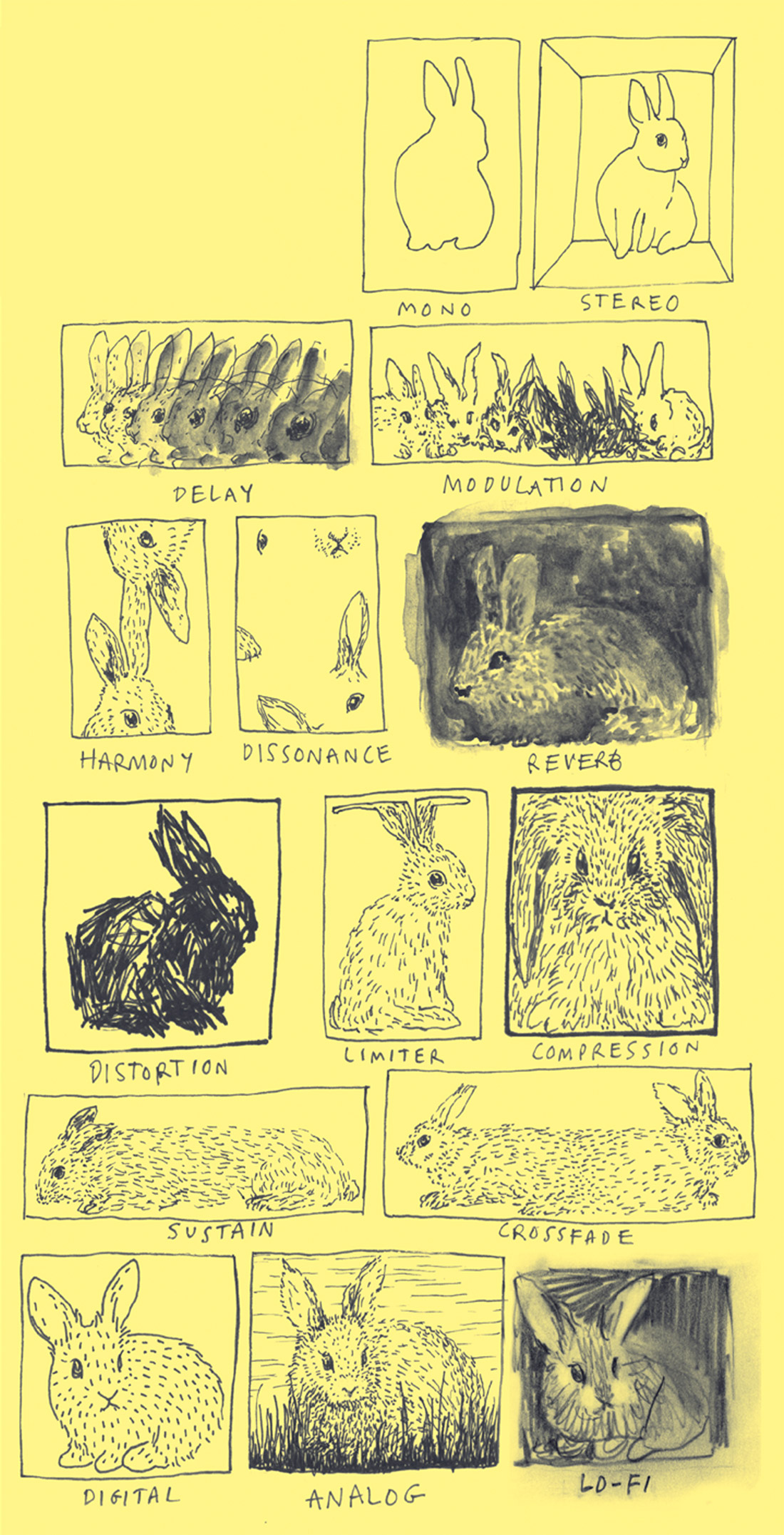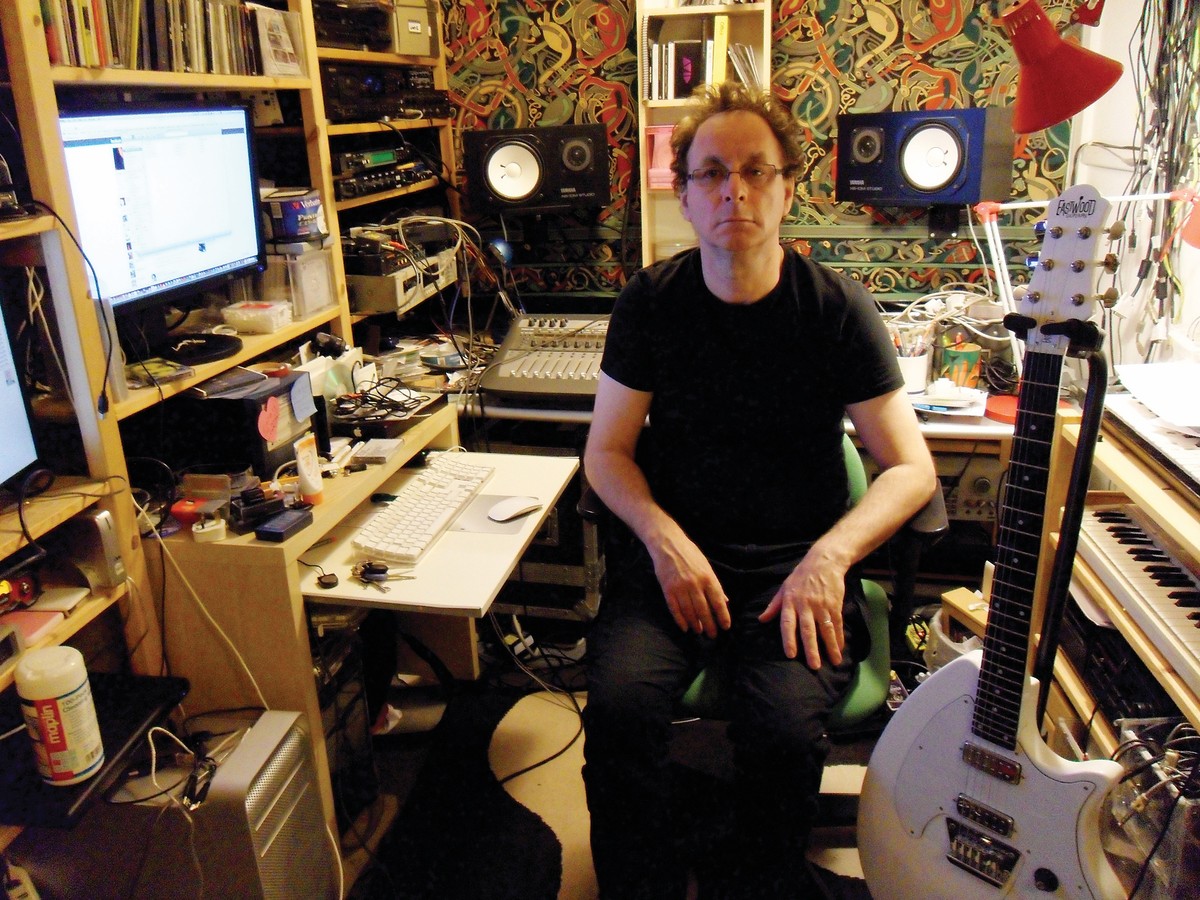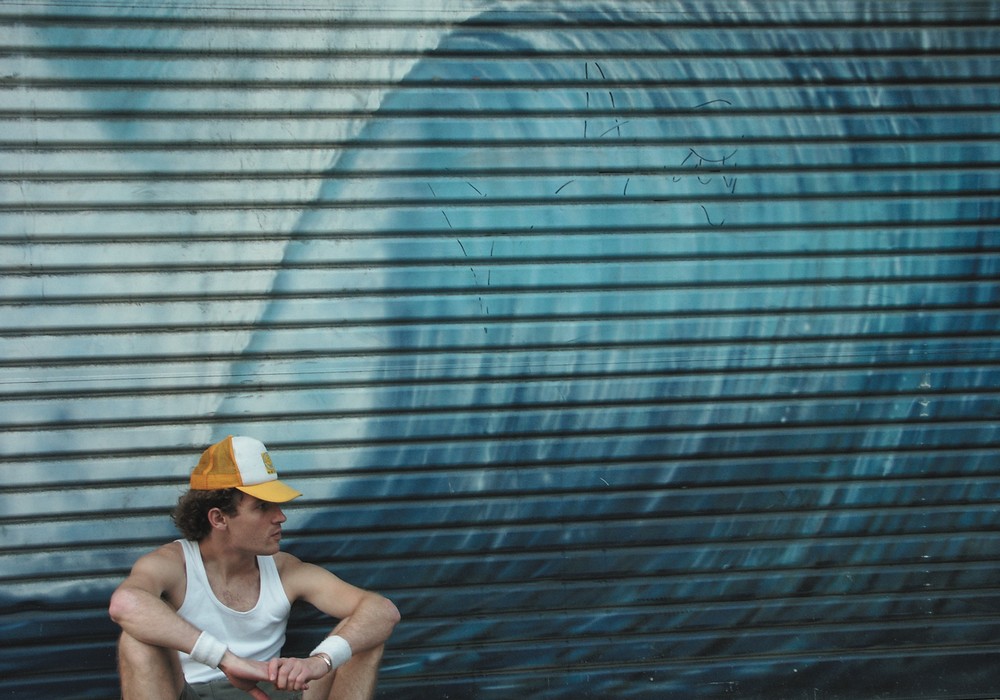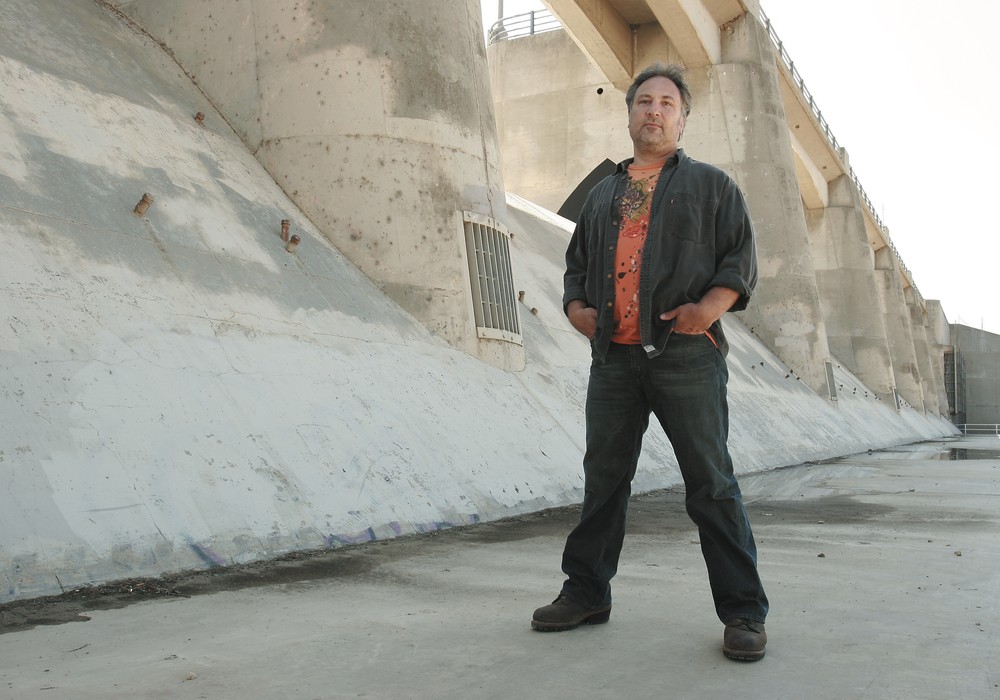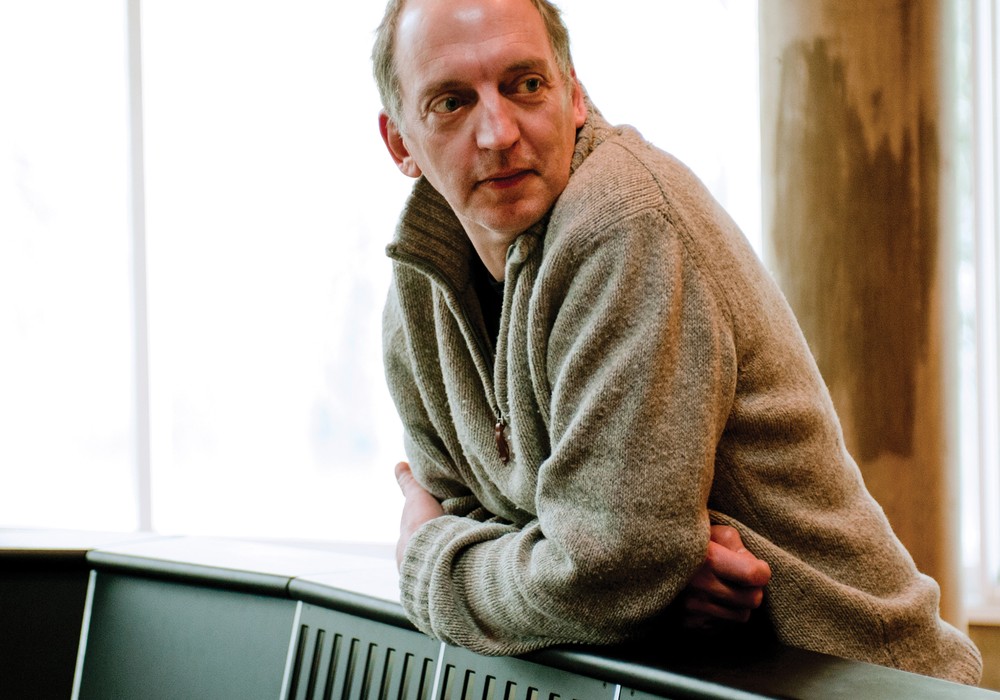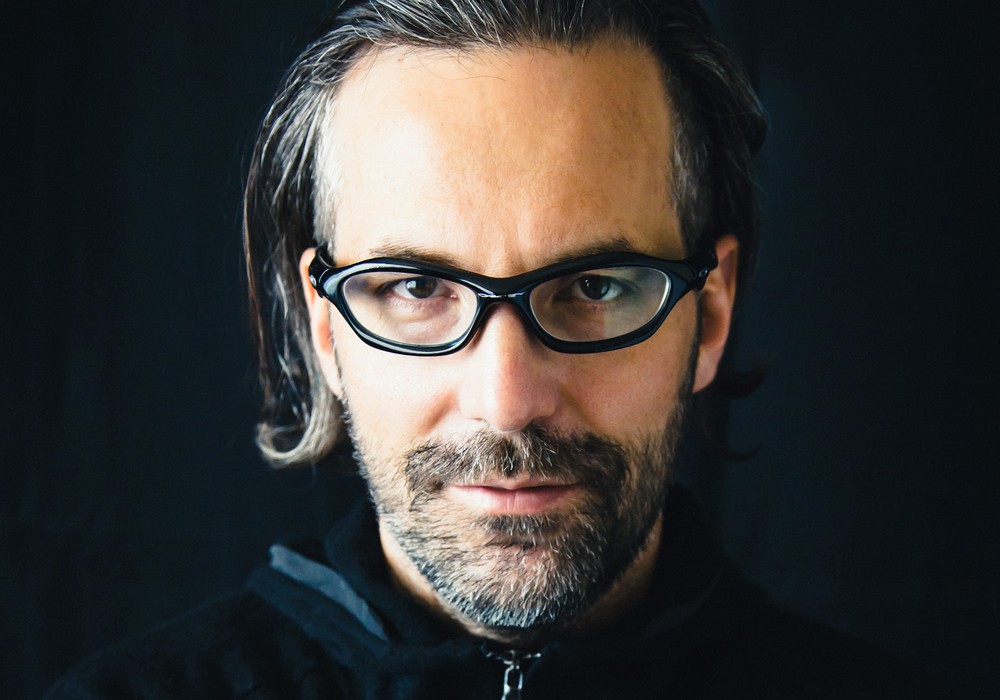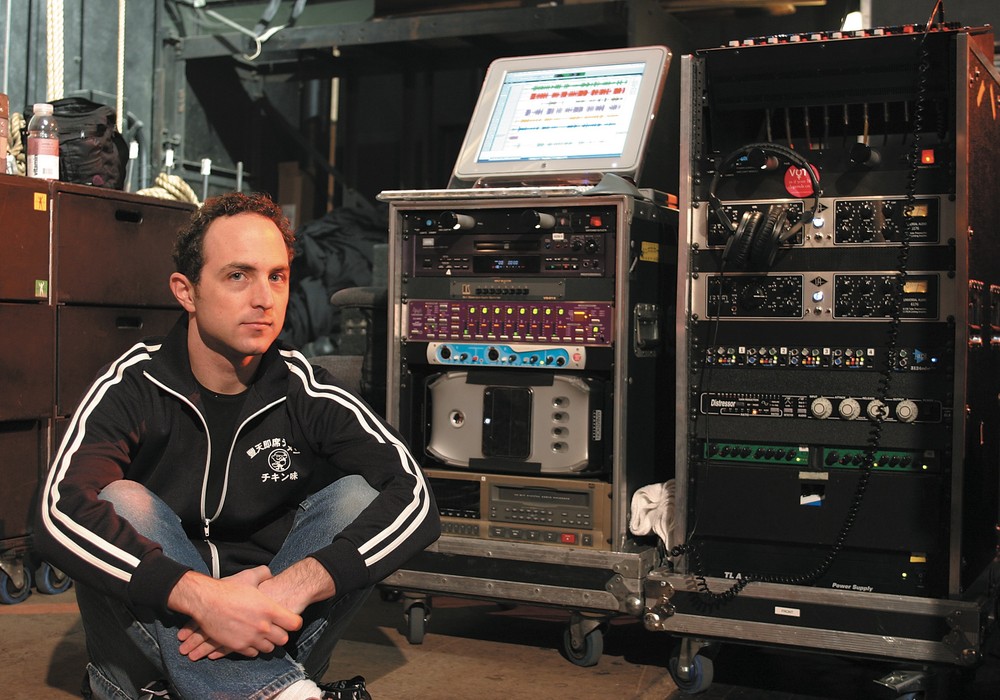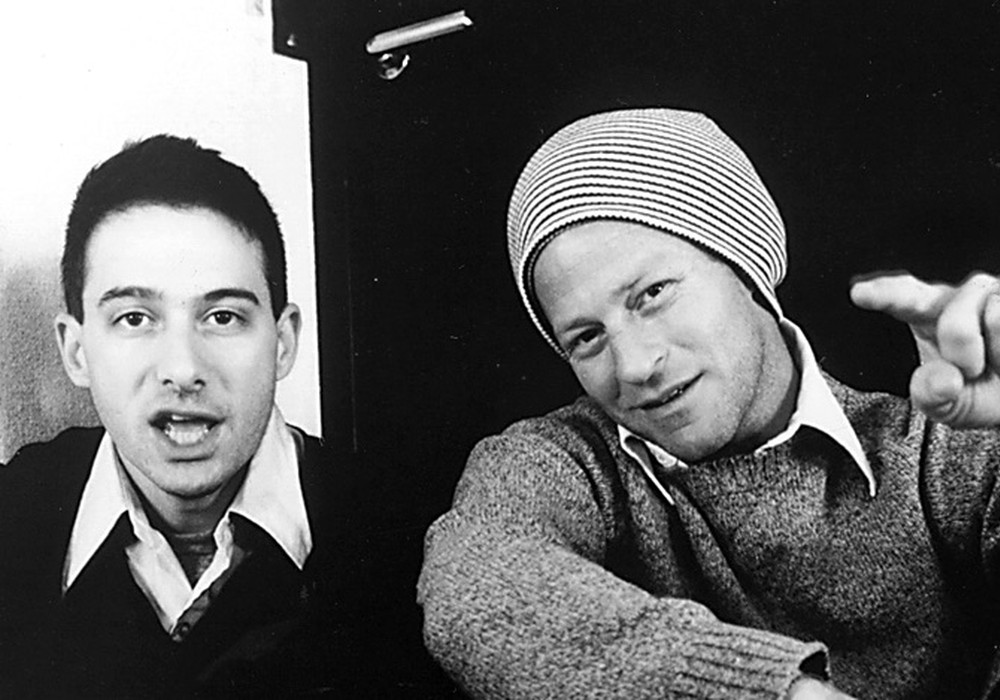When I was in high school my friend picked up a copy of Wire's 1979 album 154 based on a review in Rolling Stone. Little did I ever imagine how the sonics of that album, and so many other records by Wire (and solo work by singer/guitarist Colin Newman), would influence my own taste and record making over the following years. Texture, darkness, tension, odd precision and oblique lyrics have always filled Colin's work, much to my delight. Noticing that he also became more studio savvy as the years passed, producing, tracking and mixing many of his projects, I realized it was time to pay a visit to his home-based Swim Studio in London. Wire keeps making records and their last studio album, Red Barked Tree, is seriously among their best work. Along with other projects, Colin also has the enjoyable Githead — a band with his wife Malka Spigel, her former Minimal Compact band member Max Franken, and Robin Rimbaud of Scanner.
When I first heard Wire, it felt like such an anti-learning-how-to-play- band. Rudimentary ability was trumped by concepts and ideas.
I've always famously said that I'm no better a guitarist than I was when I was 16. I'm probably slightly better now, but not much. I'm not obsessed.
Most Wire fans were introduced to the band via the first two albums, Pink Flag and Chairs Missing. But I obsessed over your third album, 154, for years before hearing its predecessors. When you first went in to record that album with Mike Thorne producing, I assume there was an engineer there as well.
Paul Hardiman, who produced Chris de Burgh's "The Lady in Red" later.
I've heard the Behind The Curtain (Early Versions 1977 & 78) demos. How much of a change did you see between the demos and album?
There's always a great squabble over authorship and who did what and who had all the great ideas, but there's also the Rockpalast video that we released [Wire on the box: 1979] which is us playing live. It's the same band playing the same material that's unproduced. A lot of what is assumed to be production was, in fact, just the band playing the arrangements that we worked out between us. The opening track on 154 ["I Should Have Known Better"] was originally a Graham [Lewis] song based around this bass line, and it wasn't my favorite song. We got into the studio and it was the first thing we worked on. I started playing this sort of "duh duh duh duh duh," then Bruce [Gilbert, guitar] immediately picked up on it and we were playing single notes. Robert [Gotobed/Grey] came in with the drums. Within five minutes we had that arrangement and we recorded it. That's an eclectic piece of work, and that's how the band meets the material and works with it. Of course Paul and Mike knew stuff that we didn't know [about working in the studio]. This was back when it took three days to get a bass drum sound. You'd come into the control room and they'd still be listening to one bass drum.
On these records?
Oh, yeah. It was a really top of the line studio — very expensive — and we had three or four weeks to record an album. It was considered a very decent amount of time to make a record, so certainly time was taken to get the drum sound. I think that's what happened when Wire came back in the '80s. I had already done some solo records with Mike in the early '80s and we had a fundamental disagreement about how we wanted things to go on. I became the default producer and I didn't really know what I wanted, but I was talking with Steve [Parker] at the time — he was with a studio called Scorpio Sound. It was a learning process for me about how to make a record and it was enormous fun. I'm sort of a minimalist.
Provisionally Entitled The Singing Fish is one of my favorite solo records of yours.
That was my first production.
The record really sounds like, "Let's play this part and then let's put this part on, and this part on." It's so much layering.
Usually we started with the drums.
Was that a concept of how to build it up?
Well, the original thing was that I had done some demos where I'd play something and then I'd play it back twice as fast — like chipmunk style. I thought it was really good. Playing with speed was sort of how the early things were born, basically. It was based on things I used to do at home, tape-to-tape. Just building tracks by layering. It was just Steve Parker and me in the studio. There were no musicians coming in. We'd say, "What are we going to do now? Alright, let's start with this." It's got my appalling drumming on it.
And then you were asked to produce other folks.
My first production job was for the Virgin...
